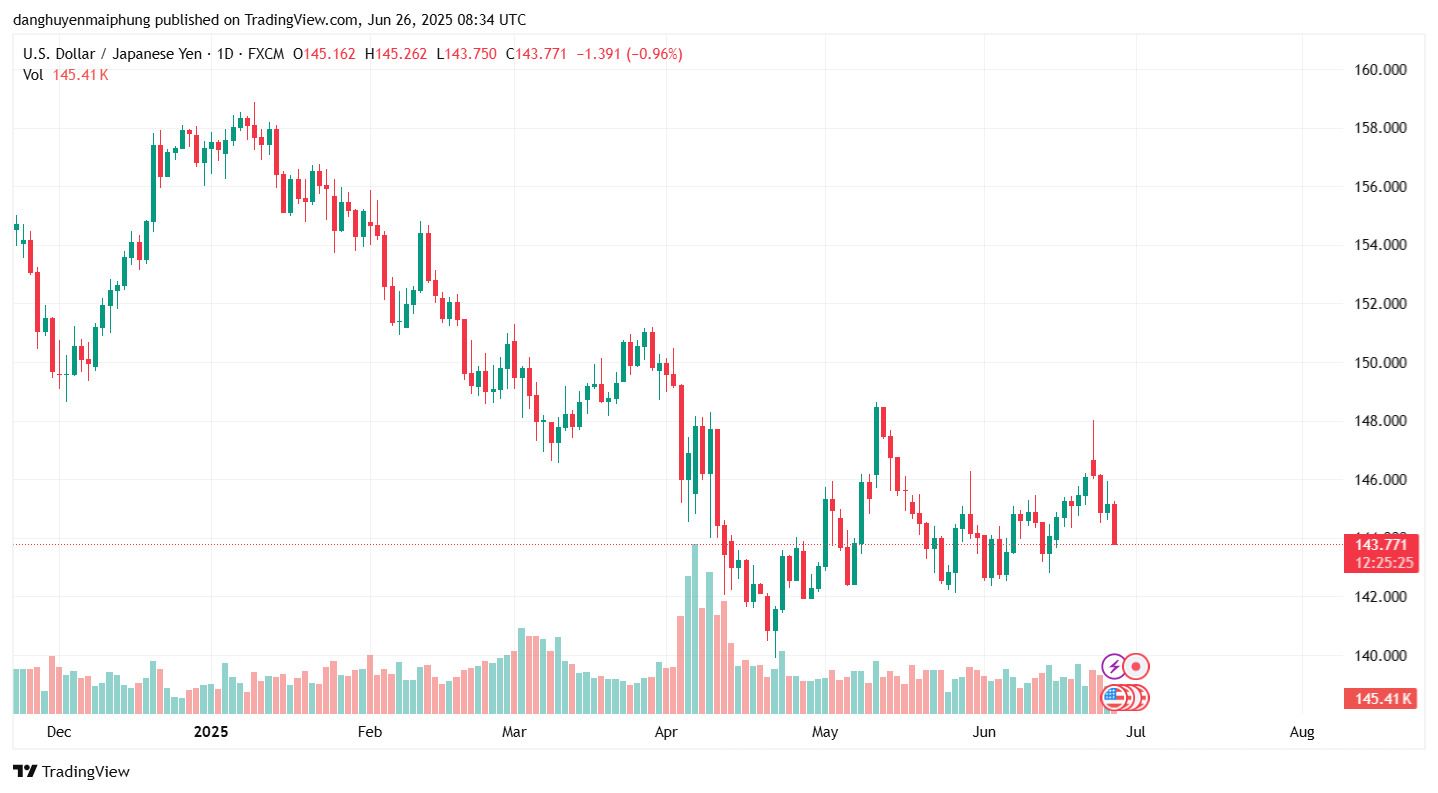Yen exchange rate today
According to Lao Dong, on June 26, the Japanese Yen (JPY) continued to increase strongly against the US Dollar (USD), dragging the USD/JPY pair to its lowest level in nearly two weeks.

The main reason is the increased demand for safe-haven assets amid many uncertainties in the US and expectations that the Bank of Japan (BoJ) will continue to raise interest rates.
Investors are increasingly confident that the BoJ will continue to tighten monetary policy in the coming time, after data shows that inflation in Japan continues to increase. Core inflation has exceeded the BoJ's 2% target for more than three years and recently increased to a more than two-year high in May.
In addition, the enterprise manufacturing service price index - an early indicator of consumer inflation trends - has also been holding above 3% for the same period last year for many months.
Japanese Yen appreciates thanks to demand for safe-haven assets and expectations of BoJ continuing to increase interest rates
According to FXStreet, although the BoJ recently announced that it will slow down the pace of bond purchases starting from the 2026 fiscal year, maintaining a cautious stance does not reduce market expectations for the possibility of continuing to raise interest rates in the short term.
Meanwhile, in the US, the USD weakened as the market worried about the future of the Federal Reserve (Fed). President Donald Trump continues to criticize Fed Chairman Jerome Powell and said he is considering a replacement for the position. Tensions between President Trump and Mr. Powell have raised doubts about the independence of the Fed - a factor that makes investors seek shelter assets such as the Yen.
Chairman Powell said in an audience with the National Assembly that inflation is showing signs of cooling down but warned that new tariffs could change the situation. He stressed that the Fed will maintain current interest rates until the impact of tax policies is clearer.
However, the market still predicts that the Fed can cut interest rates by at least 50 basis points before the end of the year and the possibility of a cut in July is about 20%. This further pressures the USD down and pushes the USD/JPY exchange rate lower.
Meanwhile, the ceasefire between Israel and Iran is still being maintained, helping to stabilize market sentiment. However, investors are paying attention to important inflation figures from Japan and the US due out this Friday.











